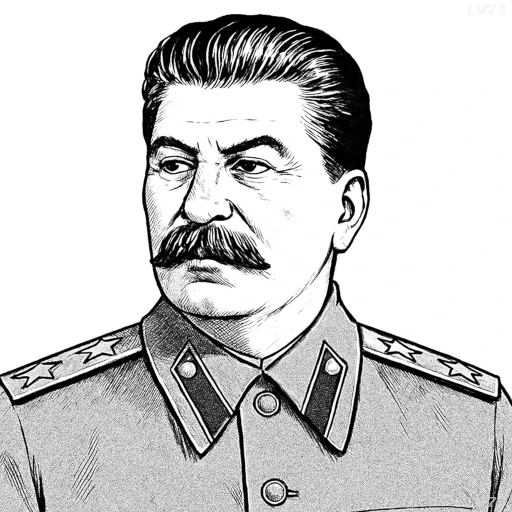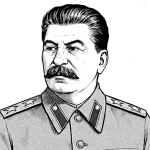“The only real power comes out of a long rifle.”

- December 18, 1878 – March 5, 1953
- Born in Georgia
- Politician
table of contents
Quote
“The only real power comes out of a long rifle.”
Explanation
This quote reflects Stalin’s realpolitik approach to power, where he believed that true authority was not derived from moral authority, political ideology, or diplomatic agreements, but from military strength—specifically the power of force as represented by weapons. The “long rifle” here symbolizes the military might and coercive power that, in Stalin’s view, were necessary to maintain control and assert dominance, both within the Soviet Union and in international affairs. It is a blunt expression of the totalitarian mindset that saw violence and the threat of force as integral to securing and maintaining power.
Under Stalin, the Soviet state relied heavily on its military and secret police (such as the NKVD) to enforce its policies, suppress opposition, and extend its influence. The Great Purges and the use of force against both internal and external enemies were key aspects of his leadership, reinforcing the idea that the state’s ability to wield force was paramount. Stalin’s regime, marked by repression and brutality, saw violence as a necessary tool for the survival and expansion of the state, and this quote encapsulates that philosophy. Stalin believed that diplomacy, ideology, or goodwill were secondary to the ultimate authority held by those with the power to fight.
In the modern context, this quote serves as a stark reminder of how the military-industrial complex and authoritarian regimes often prioritize force as the primary means of maintaining power. It underscores the dangers of viewing military might as the ultimate solution to political and social issues. Today, the quote highlights the need for peaceful diplomacy, human rights, and conflict resolution as alternatives to the violent exertion of power. It serves as a cautionary tale of how the belief in the primacy of force can lead to oppression and destruction, urging us to reflect on the broader implications of such a worldview for both internal governance and international relations.
Would you like to share your impressions or related stories about this quote in the comments section?
